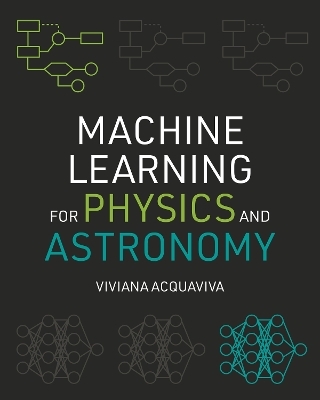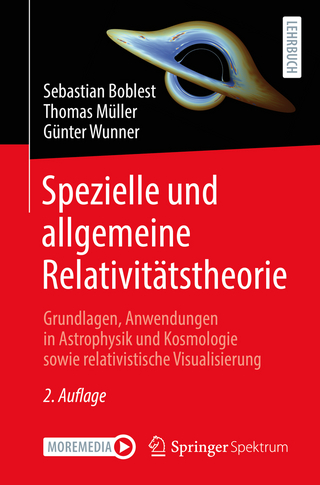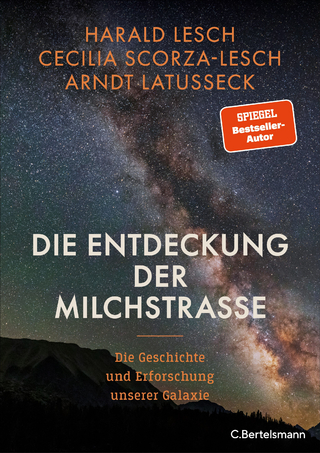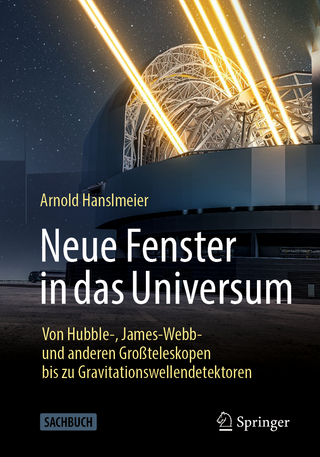
Machine Learning for Physics and Astronomy
Seiten
2023
Princeton University Press (Verlag)
978-0-691-20392-8 (ISBN)
Princeton University Press (Verlag)
978-0-691-20392-8 (ISBN)
A hands-on introduction to machine learning and its applications to the physical sciences
As the size and complexity of data continue to grow exponentially across the physical sciences, machine learning is helping scientists to sift through and analyze this information while driving breathtaking advances in quantum physics, astronomy, cosmology, and beyond. This incisive textbook covers the basics of building, diagnosing, optimizing, and deploying machine learning methods to solve research problems in physics and astronomy, with an emphasis on critical thinking and the scientific method. Using a hands-on approach to learning, Machine Learning for Physics and Astronomy draws on real-world, publicly available data as well as examples taken directly from the frontiers of research, from identifying galaxy morphology from images to identifying the signature of standard model particles in simulations at the Large Hadron Collider.
Introduces readers to best practices in data-driven problem-solving, from preliminary data exploration and cleaning to selecting the best method for a given task
Each chapter is accompanied by Jupyter Notebook worksheets in Python that enable students to explore key concepts
Includes a wealth of review questions and quizzes
Ideal for advanced undergraduate and early graduate students in STEM disciplines such as physics, computer science, engineering, and applied mathematics
Accessible to self-learners with a basic knowledge of linear algebra and calculus
Slides and assessment questions (available only to instructors)
As the size and complexity of data continue to grow exponentially across the physical sciences, machine learning is helping scientists to sift through and analyze this information while driving breathtaking advances in quantum physics, astronomy, cosmology, and beyond. This incisive textbook covers the basics of building, diagnosing, optimizing, and deploying machine learning methods to solve research problems in physics and astronomy, with an emphasis on critical thinking and the scientific method. Using a hands-on approach to learning, Machine Learning for Physics and Astronomy draws on real-world, publicly available data as well as examples taken directly from the frontiers of research, from identifying galaxy morphology from images to identifying the signature of standard model particles in simulations at the Large Hadron Collider.
Introduces readers to best practices in data-driven problem-solving, from preliminary data exploration and cleaning to selecting the best method for a given task
Each chapter is accompanied by Jupyter Notebook worksheets in Python that enable students to explore key concepts
Includes a wealth of review questions and quizzes
Ideal for advanced undergraduate and early graduate students in STEM disciplines such as physics, computer science, engineering, and applied mathematics
Accessible to self-learners with a basic knowledge of linear algebra and calculus
Slides and assessment questions (available only to instructors)
Viviana Acquaviva is professor of physics at the New York City College of Technology and the Graduate Center, City University of New York, and the recipient of a PIVOT fellowship to apply AI tools to problems in climate. She was named one of Italy’s fifty most inspiring women in technology by InspiringFifty, which recognizes women in STEM who serve as role models for girls around the world.
| Erscheinungsdatum | 11.10.2023 |
|---|---|
| Zusatzinfo | 104 color illus. |
| Verlagsort | New Jersey |
| Sprache | englisch |
| Maße | 203 x 254 mm |
| Themenwelt | Naturwissenschaften ► Physik / Astronomie ► Astronomie / Astrophysik |
| ISBN-10 | 0-691-20392-X / 069120392X |
| ISBN-13 | 978-0-691-20392-8 / 9780691203928 |
| Zustand | Neuware |
| Haben Sie eine Frage zum Produkt? |
Mehr entdecken
aus dem Bereich
aus dem Bereich
Grundlagen, Anwendungen in Astrophysik und Kosmologie sowie …
Buch | Softcover (2022)
Springer Spektrum (Verlag)
49,99 €
die Geschichte und Erforschung unserer Galaxie
Buch | Hardcover (2023)
C.Bertelsmann (Verlag)
30,00 €
Von Hubble-, James-Webb- und anderen Großteleskopen bis zu …
Buch | Softcover (2024)
Springer (Verlag)
22,99 €


